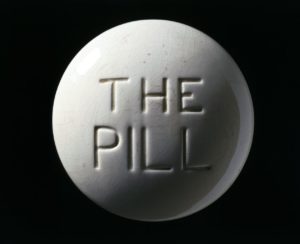Women using hormonal contraceptives have a 20% higher risk of developing breast cancer

A study on all women of Denmark in the reproductive age group has found. The study has been published in the New England Journal of Medicine.
Researchers at the University of Copenhagen assessed associations between the use of hormonal contraception and the risk of invasive breast cancer in a nationwide prospective cohort study involving all women in Denmark between 15 and 49 years of age who had not had cancer or venous thromboembolism and who had not received treatment for infertility. “The risk of breast cancer was higher among women who currently or recently used contemporary hormonal contraceptives than among women who had never used hormonal contraceptives, and this risk increased with longer durations of use; however, absolute increases in risk were small,” the study concluded.
Breast cancer has, for some years now replaced cervical cancer as the commonest cancer among Indian women.
 Among 1.8 million women who were followed on average for 10.9 years, 11,517 cases of breast cancer occurred. The relative risk of breast cancer among all current and recent users of hormonal contraception was 1.20, the NEJM article says. After discontinuation of hormonal contraception, the risk of breast cancer was still higher among the women who had used hormonal contraceptives for 5 years or more than among women who had not used hormonal contraceptives.
Among 1.8 million women who were followed on average for 10.9 years, 11,517 cases of breast cancer occurred. The relative risk of breast cancer among all current and recent users of hormonal contraception was 1.20, the NEJM article says. After discontinuation of hormonal contraception, the risk of breast cancer was still higher among the women who had used hormonal contraceptives for 5 years or more than among women who had not used hormonal contraceptives.
Breast cancer has, for some years now replaced cervical cancer as the commonest cancer among Indian women. It has an incidence rate of 25.8 per 100,000 women. According to an article published in the Asia Pacific Journal of Clinical Oncology in February this year, “The age adjusted incidence rate of carcinoma of the breast was found as high as 41 per 100,000 women for Delhi, followed by Chennai (37.9), Bangalore (34.4) and Thiruvananthapuram District (33.7). A statistically significant increase in age adjusted rate over time (1982–2014) in all the PBCRs namely Bangalore (annual percentage change: 2.84%), Barshi (1.87%), Bhopal (2.00%), Chennai (2.44%), Delhi (1.44%) and Mumbai (1.42%) was observed.” The commonest hormonal contraceptives are birth control pills. Others are intrauterine devices and also injectable contraceptives.


